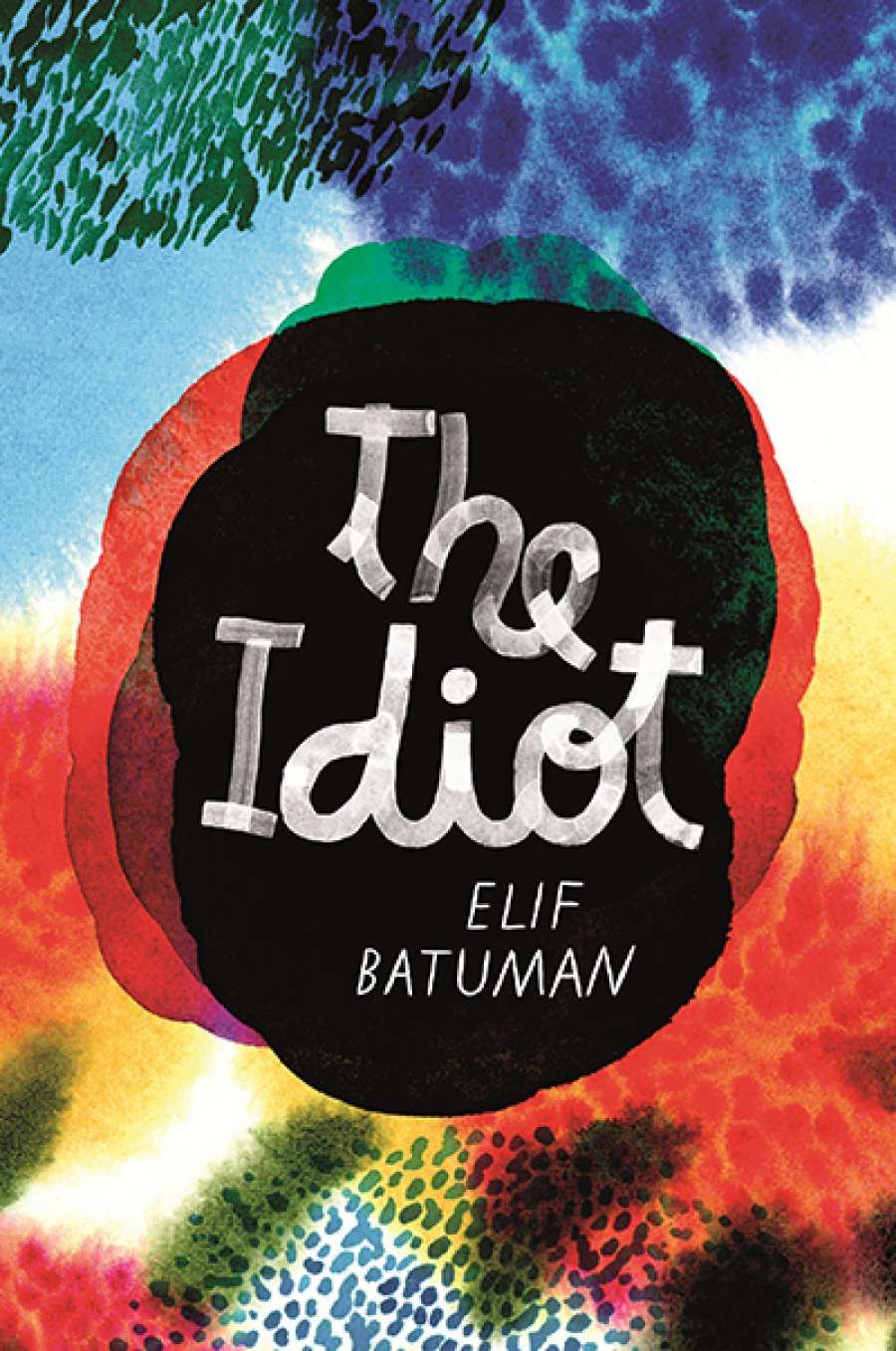
- Free Article: No
- Contents Category: Fiction
- Custom Article Title: Beejay Silcox reviews 'The Idiot' by Elif Batuman
- Review Article: Yes
- Online Only: No
- Custom Highlight Text:
Email is a chimeric beast, an uneasy mix of intimacy and distance – unlimited time and space to say precisely what we mean, coupled with the unnerving promise of instant delivery ...
- Book 1 Title: The Idiot
- Book 1 Biblio: Jonathan Cape $32.99 pb, 432 pp, 9781910702703
Readers familiar with Batuman’s assured collection of essays, The Possessed (2010), will notice the resemblance between Selin and her author; but it is more interesting to consider The Idiot as a brazen stylistic rebellion, than it is to sift truth from fiction. Batuman dislikes the hermetic neatness of much of contemporary American fiction, and its solipsistic obsession with personal identity. The increasingly robust American culture of MFA programs (graduate degrees in creative writing) is often blamed – fairly and unfairly – with fuelling this kind of work, and Batuman is a vocal critic.
While Batuman, a staff writer at The New Yorker, is an accomplished non-fiction author, The Idiot is a bold invitation to be judged by her own literary standards. Batuman has long entreated young writers to: ‘Write long novels, pointless novels’ and to write fiction that ‘redraw[s] the boundaries of life itself’, by integrating and redeeming the ‘irrelevant garbage’. The Idiot makes good on such threats – it is indeed a long, pointless novel full of irrelevant garbage – but in the best possible way. A leaky balloon of a book, sputtering, airy, and bright.
As her purloined title implies, Batuman is looking to the defiantly unwieldy Russians for inspiration. Selin, an admirer of the Russians, approaches her life as she approaches these behemoths, sure that meaning can be captured and pinned to the page like some silver-winged insect. She enrols in linguistics courses in the hope that she will find the tools she needs, but the more Selin learns, the more elusive meaning becomes. As much as she yearns to be ‘a courageous person, uncowed by other people’s dumb opinions’, she cannot summon any of her own – dumb or otherwise. ‘I went from class to class, read hundreds, thousands of pages of the distilled ideas of the great thinkers of human history and nothing happened.’ In the absence of opinions, Selin tenders observations, which are astute, sardonic, absurd, and often incandescently funny (‘Europe was so small. It seemed weird that people took it so seriously.’)
The Idiot follows Selin as she stumbles, existentially mute, through her freshman year and summer abroad teaching English to idiosyncratic Hungarians. Selin has quirky roommates, an adversarial friendship with an impulsive Serbian, and a crush on an inscrutable grad student with whom she exchanges equally inscrutable emails. The stage is set: awkward sex and heartbreak, mild drug use, a European adventure, and an epiphany or two. We know the script, but Batuman refuses to oblige. No sex, no drugs, no reckoning. Rather, she delivers a playfully deadpan and intelligent anti-bildungsroman about the slipperiness of language. Jeffrey Eugenides’s The Marriage Plot, with bite.
 Elif Batuman
Elif Batuman
(photograph by Beowulf Sheehan)At times, Selin does seem too deliciously cruel for someone so insistently naïve. Encountering her first Ethernet cord, Selin asks her roommate: ‘What do we do with this, hang ourselves?’ It is a wryly prescient question, and just a little too knowing, too perfect. At other times, her wilful interiority frustrates. We want to shake her out of herself – into speech, into action, into her body, into life.
For a novelist who decries cleanliness, The Idiot is also too conscientious in its chaos. There is an intellectual mess, but no heat – no lust, grief, fury, or joy. We ache, like Selin’s art professor, to see behind the scenes at the museum, to venture past Batuman’s curation. We want to see the ‘blood and guts in the back room’, rather than pause sedately to admire a breakfast pastry, or meet yet another Hungarian.
The price of ambition is imperfection. It takes guts to nail your writerly colours to the mast, and skill to anchor a novel in an historical moment. For the last generation of Australians who grew up without email, Batuman’s moment will feel tenderly familiar. We agonised over our emails, because we wanted our words to say more than they ever could – to reveal ourselves. The Idiot is a love letter to our inadequacies, and just like those carefully crafted 1990s emails, it is smart, funny, and ever so slightly over-thought.


Comments powered by CComment